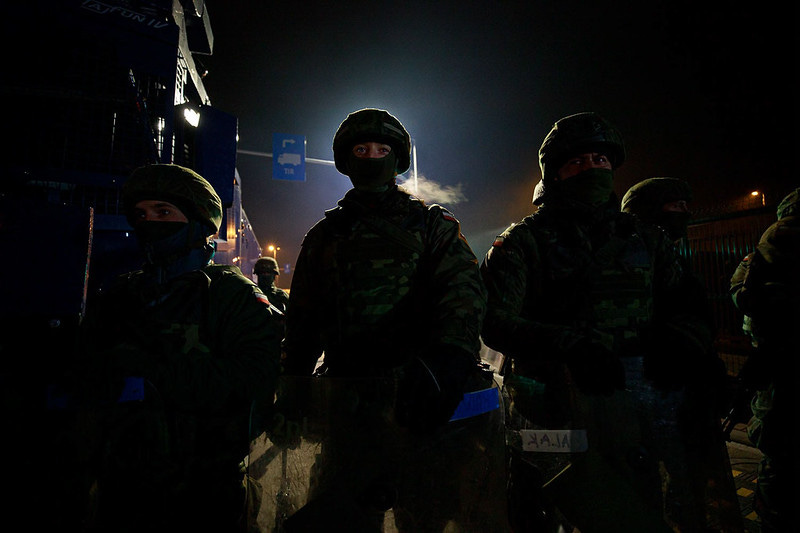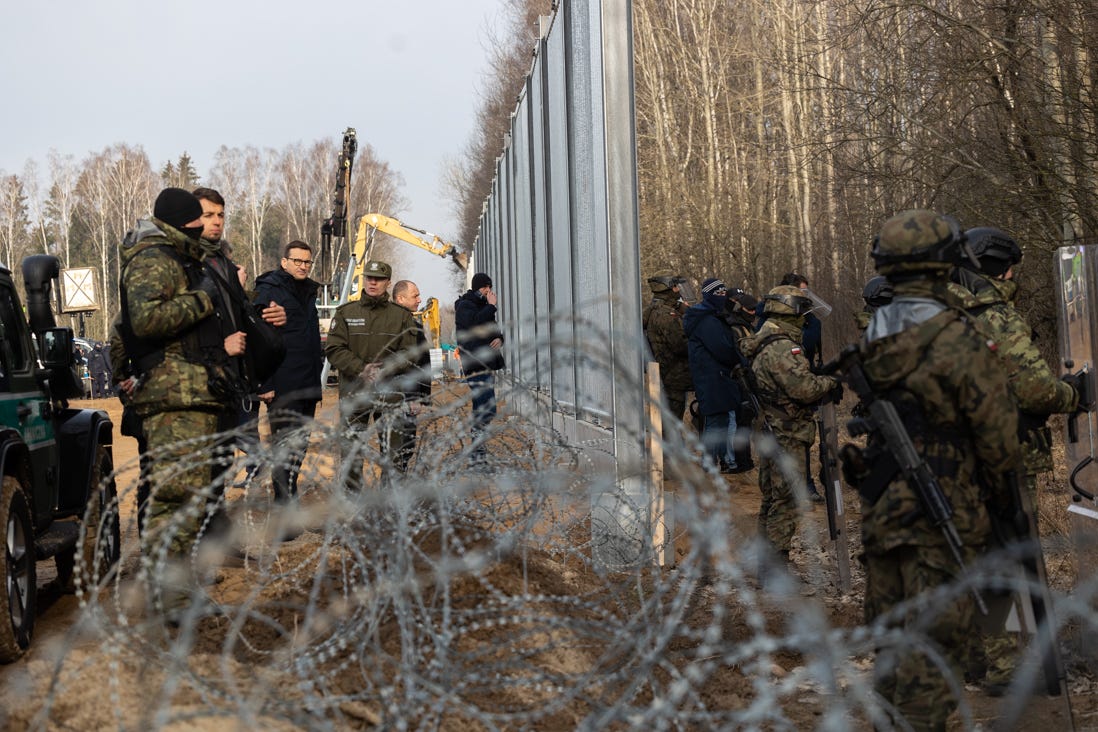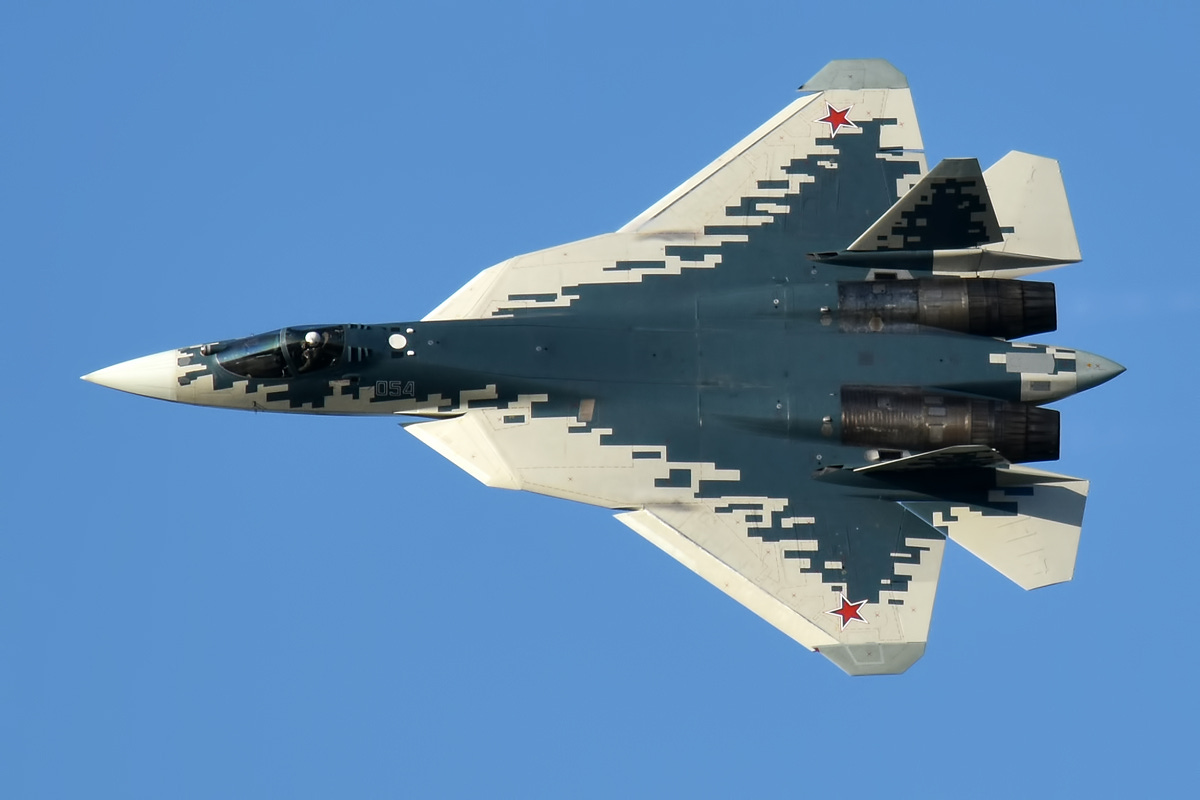Death on the Poland-Belarus border, Ukraine gets help from France, and EU Parliamentary votes roll in
June 3-9 in Eastern Europe

I’ll be taking next week off, so to make up for it, enjoy this special expanded edition of The Eastern Flank this week!
What You Need To Know:
This roundup combines last week’s top news with important underreported stories
1. In-Depth: A Polish soldier is killed on the Poland-Belarus border
Violence along Poland’s frontier marks a turning point in Russia’s proxy war with NATO
June 6 marked a grave milestone in Russia’s shadow conflict with the West that was underappreciated by observers in the English-speaking space — for the first time since the Cold War, a member of a NATO military was killed as a result of Russian hybrid operations in Europe.
On Thursday last week, Mateusz Sitek, a private in Poland’s armed forces, succumbed to wounds he received when he was attacked by an assailant wielding a makeshift knife-tipped spear on the Polish-Belarusian border on May 28. The event touched off a furious response from Poland’s government, led by Prime Minister Donald Tusk, who has since resurrected the infamous exclusion zone along the border that his predecessors and rivals, the Law and Justice Party (PiS) had put in place for over a year starting in 2021. Since then, Belarus’s pro-Russian leader Alexander Lukashenko has been orchestrating a man-made migration crisis along the borders of Poland, Lithuania, and Latvia, aiming to sow division and infighting within the EU and NATO.
Back in 2021, I traveled to the Polish-Belarusian border, visited the exclusion zone, and covered the suffering of those trying to cross it. Now, since Sitek’s death, Tusk’s government has instituted policies that go well beyond those that PiS had put in place then — after previously announcing multi-billion euro investments in additional border fortifications, Poland has now ordered all of its security forces along the border to carry firearms. The speaker of parliament has gone so far as to state that service members should “shoot at thugs who attack them.”

The confounding factor of the escalating crisis along the border is that the individuals attacking soldiers like Sitek are not enemy soldiers, but migrants who were lured by Belarus and Russia to set out on the migration route through Poland only to then be coerced into attempting dangerous crossings of the border that have left dozens killed.
This year, the number of such crossings has spiked considerably to levels unseen since 2021 — since January, around 17,000 illegal crossing attempts have reportedly taken place. Yet even as things have grown more violent, much has remained unclear about this latest influx. According to Polish officials, 90% of these migrants have Russian visas, and in the wake of Sitek’s killing the government has claimed that many of them have received training from pro-Russian forces and been incentivized to attack Polish soldiers at the border. Some experts have even claimed that these are in fact militants that are recruited from the Middle East and Africa by the Wagner Group, which has operated in Belarus since 2023.
Of course it is difficult to verify such claims, and it is very much in the interest of Polish state officials to play up such threats due to both the European parliamentary elections this past weekend and upcoming presidential elections in 2025. However, the crisis has indeed evolved dramatically since 2021, and the security threat the situation now poses is much more complex and significant than it was then. But current Polish leaders, like PiS before them, have continued to fall into the trap Belarus and Russia have set for them, and have continued to treat Poland’s border security policy and its policy on irregular migration as one and the same.
Poland’s border guard has systematically engaged in pushbacks of migrants back into Belarus as they’ve attempted to cross the border, a practice that has been condemned by aid organizations as a violation of international asylum law. The justification for this practice has always been couched in security — an argument that is perhaps more powerful than ever due to recent events. This however is exactly how Lukashenko and Putin have been able to realize their goal of dividing political society in Poland, pitting Polish leaders and security forces against humanitarians fighting to help migrants survive in the brutal frontier wilderness. Political polarization has deepened and anti-migrant attitudes have flared as a result, emboldening controversial voices on the right that threaten to divide Poland’s response to the threat posed by Russia. Sitek’s death has only accelerated this cycle.
The situation on the border is growing more dangerous by the day, not in fact because of the threat from migrants, but due to the escalatory power the crisis gives Belarus and Russia. Poland has sent a note to Minsk demanding the extradition of Sitek’s murderer, and Belarus’s response so far has been muddled and furtive. There is of course no reason to expect any serious response from Lukashenko, and his lack of action will itself be yet another weapon against Poland in the Russian sphere’s hybrid arsenal. Where such a course of action will lead, I cannot know, but the current status quo between the two won’t hold for long.

2. Ukraine has stopped Russia’s Kharkiv offensive and hit an elite Russian jet as France announced a transfer of fighter planes to Kyiv
According to US officials, American weapons have helped Ukraine halt Russia’s month-long offensive in Kharkiv Oblast this past week, however fighting is reportedly continuing in the border town of Vovchansk. Meanwhile on Sunday, Ukraine’s defense intelligence agency announced that Ukraine had destroyed a highly prized Russian Sukhoi Su-57 stealth fighter jet on Russian territory with a drone, after France committed to sending Ukraine Mirage 2000-5 fighter planes on Thursday.
Why it matters: Russia’s Kharkiv offensive has been its most successful assault on Ukrainian-controlled territory so far this year, and Ukraine’s success in stopping Russia’s advance is a much-needed positive sign at a low point in the country’s defense effort. Critically, it also demonstrates the strategic power of American weapons in the conflict and the importance of allowing their use on Russian territory. France’s jet transfer comes as French President Emanuel Macron also organized a coalition of countries that will send military trainers to Ukraine, both of which promise to further elevate Paris’s profile among Ukraine’s allies. Ukraine’s destruction of the Su-57 is the first combat loss of such a craft in Russia’s history, and showcased once again Kyiv’s deftness with drone strikes far beyond its borders.
3. Liberal parties faltered in the EU elections, raising doubts about support for Ukraine, but did better than expected in Eastern Europe
Early results from the European Parliamentary elections this weekend showed a wave of far-right gains across the continent, with Marine Le Pen’s National Rally as one of the standout winners, although more liberal parties will likely continue to hold a majority. Although the European right is far from united on the issue, such results raise questions about the future unanimity of the EU in supporting Ukraine’s defense effort. Yet in many countries in Eastern Europe, liberal parties in fact won out — in Poland, KO, headed by PM Donald Tusk, beat the populist Law and Justice Party (PiS), handing a significant defeat to the party that had ruled Poland prior to 2023, while in Slovakia the opposition defeated Prime Minister Robert Fico’s Smer Party. The right-wing also fared poorly in Romania. However in Hungary, despite optimism around Petér Magyar’s insurgent opposition to right-wing PM Viktor Orbán, Orbán’s party Fidesz beat Magyar’s party by 23%.
Why it matters: The European Parliamentary elections are the largest democratic elections in the world after India’s, and will determine the course of EU politics for the next five years. At a time when Ukraine needs all the help it can get, a more divided and EU Parliament may present significant hurdles for efforts to obtain European aid packages, begin EU accession talks, and receive other types of support from the bloc. Tusk’s win over PiS will serve to bolster his position on the domestic stage in Poland as well as in Brussels, allowing him to continue with his bold reform agenda at home. Although Magyar was, as expected, unable to trounce Orbán, the broad movement he has created in Hungary promises to remain a major force in Hungarian politics for years to come, as demonstrated by the massive rally he organized in Budapest on Saturday. Overall, the Eastern European center has indeed proven that it cannot be discounted as a political force just yet.
4. The US sanctioned Georgian officials as studies showed a Russian influence effort spread disinformation about the country’s protests
In a wide-ranging move, the US government imposed travel bans on dozens of members of the ruling Georgian Dream party, politicians, law enforcement officers, and their family members in response to the Georgian government’s push to pass its Russian-inspired foreign agent registration law, which had been condemned by the US and the EU. US officials have stated that additional sanctions would be put in place unless Georgian leaders reversed course. Also, new analyses by DFRLab have shown that a Russian influence operation called Doppelganger targeted American audiences on X, formerly Twitter, seeking to disparage Georgia’s protest movement.
Why it matters: Georgia has found itself in unprecedented international isolation since it passed the foreign agent law last month in defiance of enormous street protests in the capital Tbilisi. As Europe and the US continue to place pressure on Georgia’s ruling Georgian Dream party, it will likely be forced to either double down on its economic and political ties with Russia (and increasingly China), or walk back its reforms in hopes of reinvigorating both its path to EU accession and the vital economic and security assistance it had been receiving from the US for years.
5. Moldova stripped a former general of his rank, accusing him of spying for Russia
Moldova has stripped Igor Gorgan, a former high-ranking general, of his rank for allegedly supplying Russia with confidential information about weapons used by the Moldovan military and supply lines into Ukraine. Gorgan, who had previously participated in NATO missions in Bosnia, Georgia, and Iraq and served as the chief of Moldova’s general staff, worked with Russian handlers as far back as April 2022. His actions have been described as treasonous by Moldovan Prime Minister Maia Sandu.
Why it matters: As a key theater in the proxy war between Russia and NATO, Moldova’s military infrastructure and readiness have been strategically crucial for its ability to maintain its sovereignty and resist Russian attempts to destabilize the country since 2022. Moldova’s eastern territories are under the de facto control of Transnistria, a Russia-aligned breakaway republic, which hosts 2,000 Russian soldiers and has posed a potential threat against both Moldova and Ukraine since the start of the conflict. Gorgan’s cooperation with Russia was one of many avenues through with the Kremlin has threatened Moldova’s EU-aligned government, and won’t be the last.
Other trends to watch:
— Russian strikes on Ukraine have taken out more than half of its power generation capacity, leading to the worst blackouts in the country since the start of the war.
— Countries including Poland, Czechia, Slovakia, Romania, Slovenia, and the Baltic states and other EU members called for the start of Ukraine’s accession to the bloc before Hungary assumes the rotating presidency of the Council of the European Union next month. EU executives stated last week that both Ukraine and Moldova are ready to start accession talks.
— In the wake of a UN resolution that commemorated the genocide of Bosniaks by Serbs in Srebrenica in 1995, Serbs in Belgrade held a rally together with Serbs from Bosnia and other Balkan countries which called for “unity” between Serbs across the region. The event was particularly significant due to intensifying calls by Milorad Dodik, the leader of Bosnia’s Serb political entity, to secede from Bosnia and unite with Serbia proper.
— Slovak Prime Minister Robert Fico delivered his first public speech after the attempt on his life last month, stating he felt “no hatred” toward his attacker, but blamed the country’s opposition for creating an environment of “evil” in which such attacks were able to take place.
— In an apparent effort to tamp down on tensions between his country and Greece, the newly elected leader of North Macedonia has stated that although his government will continue to honor the agreement it reached with Athens over the name of the country, he will continue to refer to it simply as “Macedonia,” the name the country used before 2019. Last month, North Macedonia’s president-elect referred to the country using the same name, causing a diplomatic row.
— Former CEO of Poland’s state energy company Orlen, Daniel Obajtek, who is embroiled in various national scandals, has been found to be hiding out in Hungary with the apparent blessing of Viktor Orbán, according to a new investigation.
— Albanians protested against Albanian PM Edi Rama as he faced corruption allegations and hosted Italian Prime Minister Giorgia Meloni, with whom Rama had signed a controversial pact to house Italy’s asylum applicants.
— On Sunday, Bulgaria held its sixth parliamentary election in three years, however according to analysts this election will also likely fail to bring stability to the country’s political landscape.



